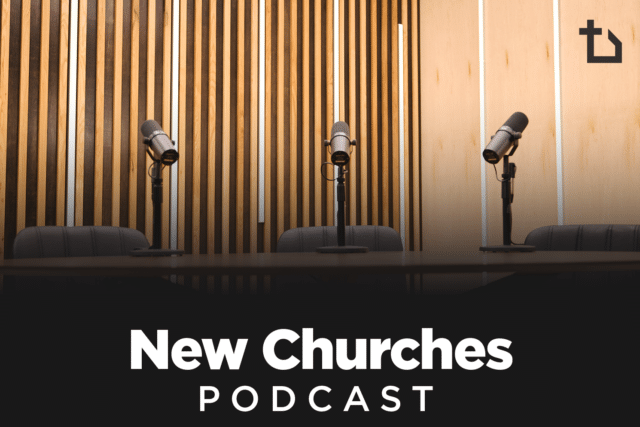Article
Why I’m Taking a 3-month Sabbatical After 3 Years into Planting a Church
I want to be joyfully ministering for the long haul.

Three and a half years ago my wife and I were part of a group that planted Hope Church NYC with a vision to become a family of diverse churches throughout New York City.
This June, my wife and I will begin a 3-month sabbatical, leaving NYC for much of the time while basking in all sorts of jovial family activities appropriate for my two children, a 4 year-old and a 5 month-old.
No, nothing scandalous has happened that is forcing this sabbatical.
No, we’re not particularly burnt-out from the rigors of planting an urban church (although I just might be but I don’t know it).
Yes, our leadership team (elder board) has approved this.
We actually planned this Sabbatical from when we first started the church. In fact, our goal was that every pastor of Hope Churches would take a 3-month sabbatical every 3 years.
Here’s why we planned this Sabbatical approach from the start:
-
I want to be joyfully ministering for the long haul
I was burnt-out and depressed in my early years as a pastor. I was only 25 years-old. I knew I couldn’t continue at the pace I was going and be joyful another year, let alone 25 more years. As a result, Emotionally Healthy Spirituality became a life-saver for me, especially as I began to incorporate the spiritual disciplines of sabbath-keeping and rest. Out of my own story of brokenness and depression, I know that without a regular rhythm of intentional rest and renewal, I wouldn’t survive. Literally.
Knowing this, our leadership blessed this idea of sabbaticals for our church planters so that we’d be in this for the long haul. It’s common knowledge that church planting–and pastoring–are insanely difficult tasks. Sabbaticals are necessary to handle some of the many trials that can arise for pastors – especially church planters.
-
Sabbath-keeping is biblical
Sabbath is a theme that runs throughout Scripture, and it’s an invitation to stop, rest, delight, and contemplate (Scazzero). It’s amazing how regularly pastors break the commandment (Exodus 20:8) of weekly sabbath-keeping (yes, it’s really a commandment). I should know because I did it for years, much to the detriment of my personal health and morale.
It’s amazing that God, who neither slumbers nor sleeps (Psalm 121:4) nor grows weary (Isaiah 40:28), is a God who takes a sabbath in Genesis 1 and invites us to do the same. God invites us to sabbath that we might taste a bit of heaven on earth (Hebrews 4), reminding us that our worth is not based in what we do or how much we produce, but sheerly due to his grace. Sabbaticals then, are extended sabbaths (Leviticus 25) which remind us of God’s unbelievable goodness toward us.
What an incredible gift for God to command us to rest and be renewed!
When we started the church and thought through the logistics of sabbaticals, we thought of 6 months every 7th year as one possibility, or 3 months every 3rd year. We chose the latter which is why we’re taking a Sabbatical this summer.
-
Leadership development becomes important
Knowing that we were planning on taking a 3-month sabbatical 3 years ago, leadership development became a super high priority for me. The question I kept asking was, “How can this church survive and thrive without me for an extended period of time?”
Much of what I did the past three years was building toward this summer so that I could become dispensable. Of course, discipleship and leadership development become key with this kind of mindset.
-
Sabbaticals create a kind of culture
A few months ago, my wife and I wrestled with whether or not to go through with this sabbatical this summer. As one might expect, there are all sorts of anxieties with taking such a long break from our young church. However, with all our fears floating in the air, we took our cue from the blessing of our leadership team and we now realize that taking the sabbatical sets a kind of culture that we hope to create in our family of churches:
- It’s a culture that values rest and renewal
- It’s a culture that does not define us by how much we accomplish and do
- It’s a culture that does not center around one person or family
- It’s a culture that creates emerging leaders to lead and gain valuable experience
Now that we’re about to go on our 3-month sabbatical, I couldn’t be more thrilled for me, our family, our leaders, and our church. I would recommend all church planters to have in place a regular rhythm of rest and renewal from the start–daily, weekly, yearly, and every few years or so. Our longevity–both personally and our church’s–depend on it.



